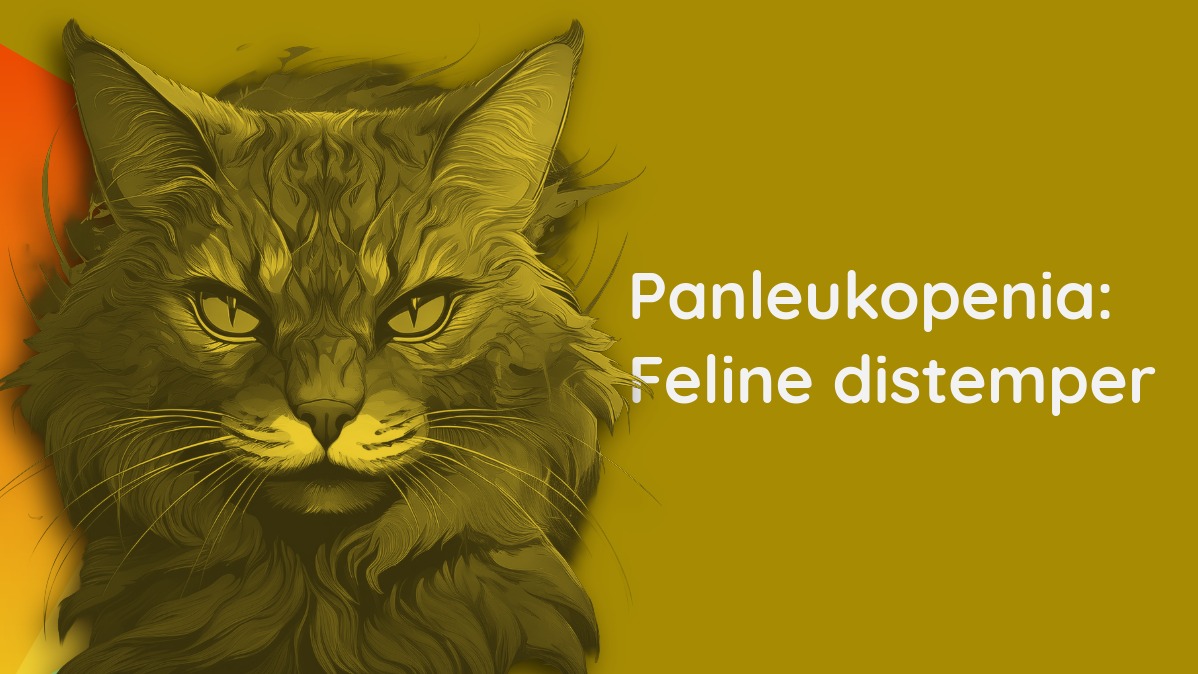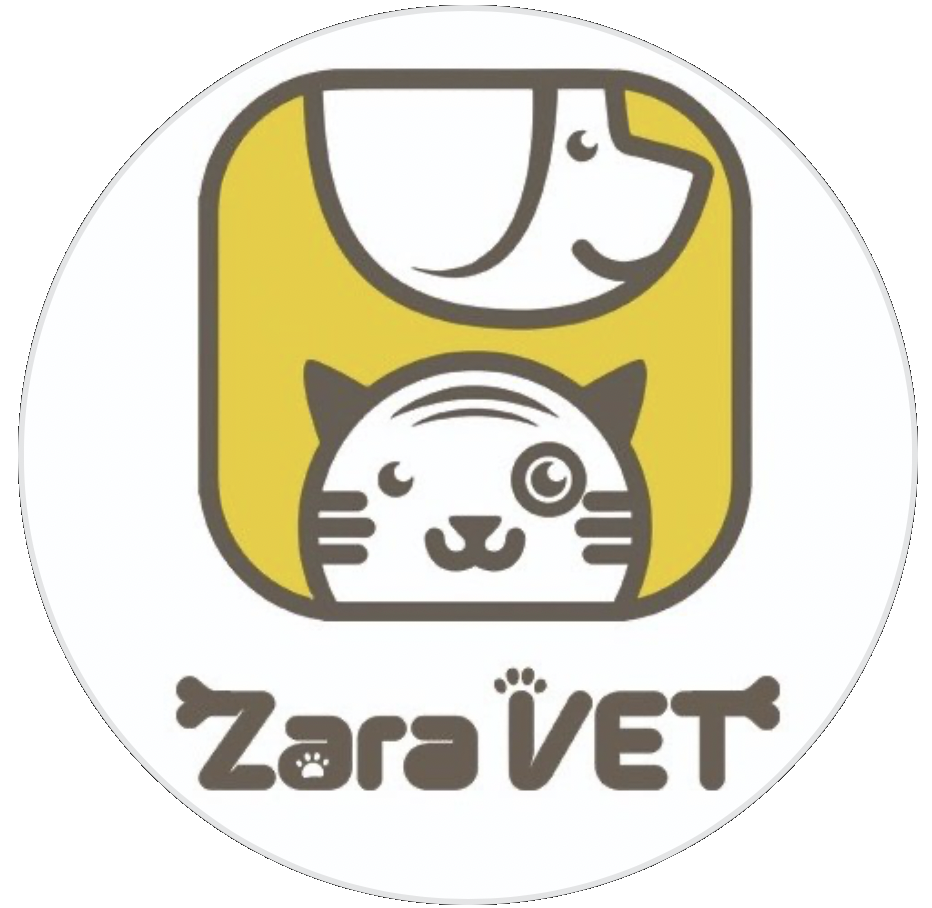published on: 18.06.2025

Panleukopenia in Cats
You may have heard feline panleukopenia called "feline distemper" or "feline parvo." These names all refer to the same serious disease caused by the feline parvovirus. This virus is dangerous because it targets and kills cells that are dividing quickly. This means it attacks the cells in your cat's bone marrow, which are responsible for creating immune cells. It also attacks the lining of the intestines. So, the virus delivers a one-two punch: it weakens your cat’s immune system so it can't fight off germs, and it damages the gut so your cat can't absorb nutrients. This double-barreled assault is why the disease can become life-threatening so quickly, especially in young kittens.
How This Dangerous Virus Spreads
One of the biggest challenges with feline panleukopenia is how easily it spreads and how long it survives. An infected cat sheds the virus in its stool, urine, and saliva. The virus can even be carried by fleas that have bitten an infected cat. You should know that this virus is incredibly tough; it can live for a year or more on surfaces like bedding, food bowls, cages, and even the soles of your shoes. This means your cat doesn't even need to meet an infected cat to get sick. You could accidentally bring the virus home. This is why kittens are so susceptible. The immunity they get from their mother’s milk starts to fade when they are around eight to twelve weeks old, leaving them defenseless until they are fully vaccinated.
(Citation: Cornell University College of Veterinary Medicine. Feline Panleukopenia. Retrieved from vet.cornell.edu)
Recognizing the Signs of Infection
You need to act fast if you see signs of panleukopenia, as up to 90% of untreated kittens can die from the disease. The virus works quickly, and a kitten can become dehydrated and develop a secondary bacterial infection within a day. Because the virus attacks the immune system and gut, the symptoms are often severe and come on suddenly. If your pregnant cat gets infected, she could lose her kittens or give birth to a litter with permanent brain damage.
Look for these common signs:
- Sudden, high fever
- Hiding or appearing depressed
- Complete loss of appetite
- Severe vomiting
- Watery or bloody diarrhea
- Pale gums (a sign of anemia from low blood cell counts)
- In later stages, collapse or seizures
How Your Veterinarian Treats Panleukopenia
When you bring a cat with panleukopenia to your veterinarian, their first priority is to stabilize them and support their body while their own immune system fights the virus. You should know there is no medication that kills the parvovirus directly. Therefore, your veterinarian will have to provide intensive supportive care, which almost always requires hospitalization. The veterinary staff will place your cat in an isolation ward to prevent the virus from spreading to other patients.
A typical treatment plan includes:
- Intravenous (IV) fluids: This is critical to correct dehydration and replace lost electrolytes from vomiting and diarrhea.
- Broad-spectrum antibiotics: These don't fight the virus, but they help prevent or treat secondary bacterial infections that can overwhelm a cat with a weakened immune system.
- Antiemetic drugs: Veterinarians use these medications to control vomiting, which helps the cat feel better, rest, and prevent further fluid loss.
- Supportive nutrition: For very weak kittens, your vet might provide glucose through the IV and slowly reintroduce food once the vomiting is controlled.
The Best Defense: Vaccination and Prevention
The good news is that you can easily and effectively protect your cat from this devastating disease. The vaccine for feline panleukopenia is a core vaccine, meaning every cat should receive it. Veterinarians typically start the kitten series at around eight weeks of age. A typical schedule looks like this:
| Age | Vaccination |
|---|---|
| 8 Weeks | First FVRCP Shot |
| 12 Weeks | Second FVRCP Shot |
| 16 Weeks | Third FVRCP Shot |
| 1 Year | First Adult Booster |
| Every 3 Years | Subsequent Boosters |
Keeping your unvaccinated cats indoors is the safest way to prevent exposure. If you need to disinfect any surfaces, the virus is resistant to many common cleaners. However, a solution of one part household bleach to 32 parts water is effective. Let the solution sit on surfaces for at least 10 minutes before rinsing. But if you are in Tbilisi, then you should vaccinate your cat. We can do this for you, along with the proper schedule of vaccines, in our Saburtalo-based clinic, or even come to you if necessary.
(Citation: American Veterinary Medical Association. Feline Panleukopenia. Retrieved from avma.org)
Frequently Asked Questions (FAQ)
Q: When should I take my cat to the veterinarian?
A: You should see a vet immediately if your kitten shows any signs like sudden vomiting, diarrhea, or refusing to eat for more than 12 hours. Early treatment is the key to survival.
Q: My adult cat missed its booster shot. What should I do?
A: If your adult cat is overdue for its vaccine and there are reports of panleukopenia in your area, you should schedule a booster appointment right away. It's better to be safe.
Q: Can humans or dogs get feline panleukopenia?
A: No. Feline panleukopenia is caused by a parvovirus specific to cats. It does not infect humans. While dogs have their own parvovirus, they cannot get sick from the feline version.
Come over for a visit at 77 Sulkhan Tsintsadze St, Tbilisi
Or call Us +995 599 996 487
